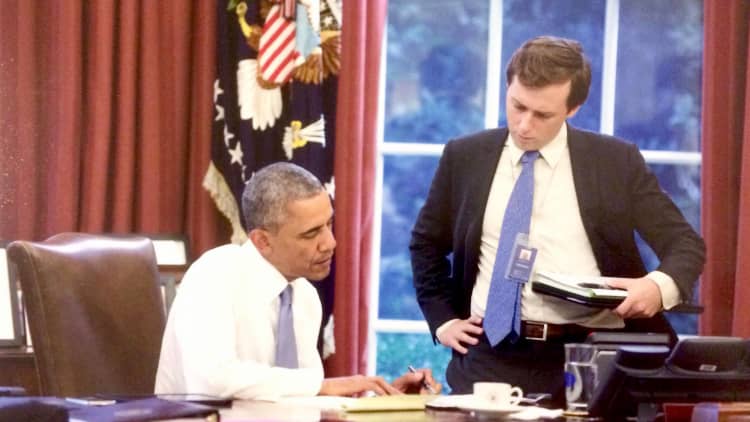Hey, I'm not sure if you have the time right now, but it would be great if you can read my latest column. Is that OK?
...said the weakest communicator ever.
Confidence is a powerful tool to gain respect and get stuff done. The world moves quickly today and people make decisions in the blink of an eye. A single word or phrase can turn us off or impact how we feel about the person who sent us a message.
Worse yet, readers can infer meaning even if it's not what we intended. It's like when we try to use sarcasm in an email — so often, the joke is a total flop because the recipient didn't understand we were making a joke.
That's why every word counts, and details always make a difference.
As you compose emails and speak with clients and colleagues, remove these five words/phrases from your vocabulary. They make you look weak.
1. "Just"
"I just want to ask you..."
"It'll just take a minute..."
"I'm just saying..."

Weak, weak, weak. "Just" is a little word with big implications. Each time we use "just," it suggests we're wasting someone's time. No, if you have something important to say, then say it.
Well, anyway...it's just a writing tip.
See how that sounds? Weak.
Moving on.
2. "Sorry"
Don't apologize all over the place. In most cases, you didn't do anything wrong. "Sorry" is more like "Sorry for bothering you" or "Sorry for taking up your time."
Of course, if you did screw up, then yeah...say "Sorry."
But if you have worthwhile information to send in an email or say aloud, then go for it. Respect yourself and the value you add to the conversation.
3. "I'm not sure if you can, but..."
Such an inferior tone. As if the other person is SO important and SO busy that you need to kneel down and beg for assistance.
How about "Would you like to..."?
Stay on equal footing with the person across from you. You're no worse (or better). Eye to eye is the way to play it.
4. "I hate to bother you, but..."
Similar to number three, "I hate to bother you, but..." connotes the other person has all the power in the relationship. Even if you're an intern, new hire or several years junior to someone at the company, you have every right to stand proudly and say, "When you have a minute, I'd like your opinion on..."
And let me tell you, plenty of business execs can "suddenly" find 15 minutes in their jam-packed schedules if someone wants their opinion. Maybe even 30 minutes or an hour.
5. "I hope that's OK"
Don't give up authority in the conversation — you have the same rights to the territory. Instead, go with "Thanks for the consideration" or "I appreciate the help."
Well, I hope you like my advice. If not, sorry for the trouble!
...said the blogger you don't respect.
Your words set the tone. Use them wisely.
Danny Rubin is the author of "Wait, How Do I Write This Email?" and "Wait, How Do I Promote My Business?" For more communication tips, follow him on Twitter at @DannyHRubin.
Like this story? Like CNBC Make It on Facebook.
Don't miss: 8 punctuation mistakes that make you look dumb


